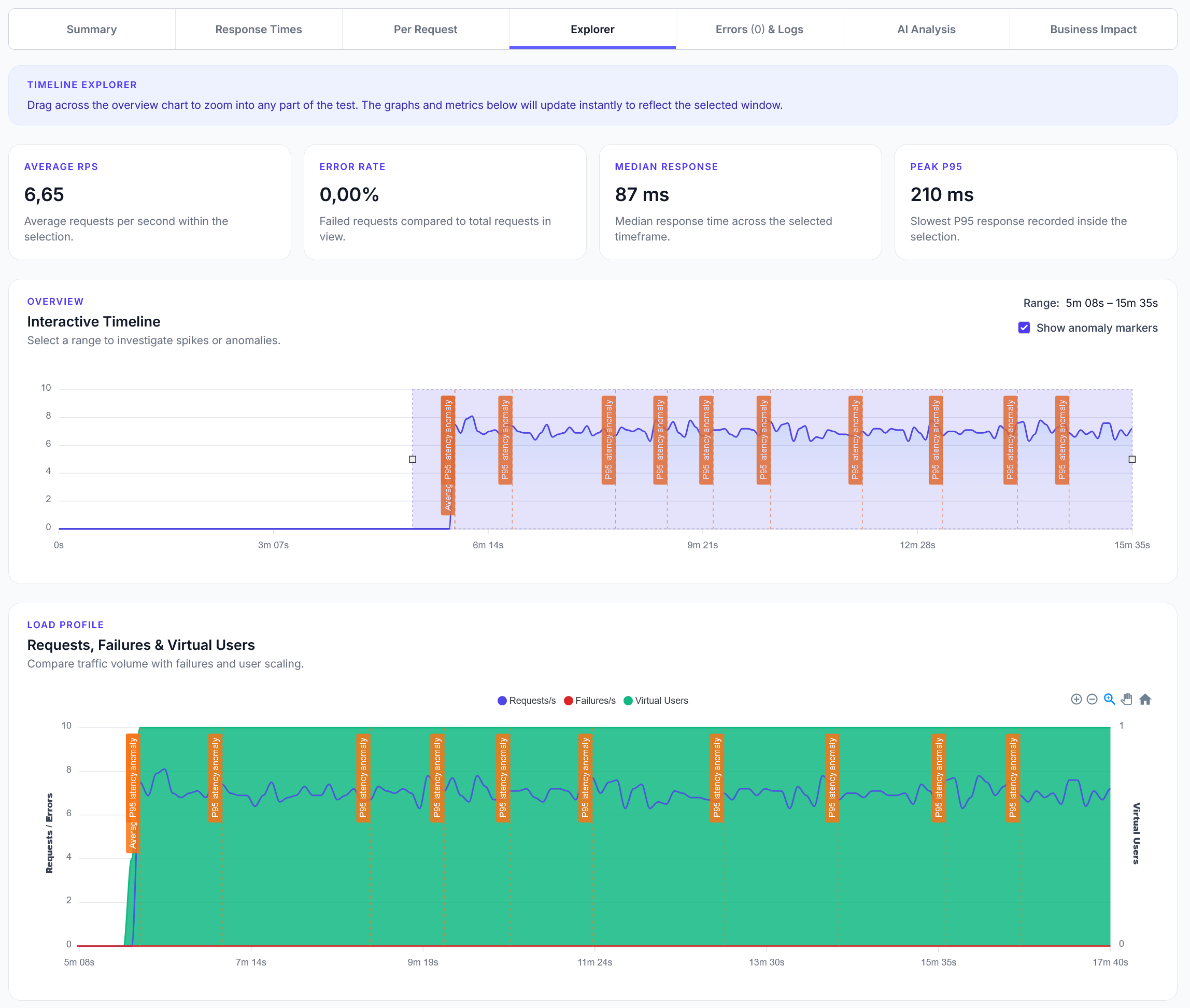
Explorer reports addition
We have added a new Explorer feature to reports, with a timeline scrubber and easy anomaly detection.
Comprehensive guide on load testing your SPA with the LoadForge platform
LoadForge can record your browser, graphically build tests, scan your site with a wizard and more. Sign up now to run your first test.
Single-page applications (SPAs) have become a popular choice in modern web development. With the dynamic retrieval of data, SPAs offer a seamless user experience as there is no need for full page refreshes. This poses some unique challenges for load testing, but with LoadForge, the process is made simple and efficient.
A Single-Page Application (SPA) is a type of web application that serves a singular web page. Instead of loading new pages, SPAs dynamically rewrite the current page with new data fetched from the server.
Key Characteristics of SPAs:
The goal of load testing is to mimic real-world users interacting with your site. In the context of an SPA:
These JSON API requests are vital for a realistic load test. To capture them:
LoadForge's wizard simplifies the load testing process:
With these configurations in place, you're all set to run your test on LoadForge!
To aid in your understanding, here's an example locust script tailored for SPAs:
from locust import HttpUser, task, between
class SPATestUser(HttpUser):
wait_time = between(5, 15)
@task
def load_spa_page(self):
self.client.get("/path_to_your_SPA")
@task
def simulate_user_interaction(self):
headers = {"Content-Type": "application/json"}
data = {
# Your JSON data mimicking user action, e.g. login details
}
self.client.post("/path_to_api_endpoint", headers=headers, json=data)
# You can add more tasks to simulate different user actions.
Remember, the more accurately your script simulates real-world user behavior, the more valuable your load test results will be!